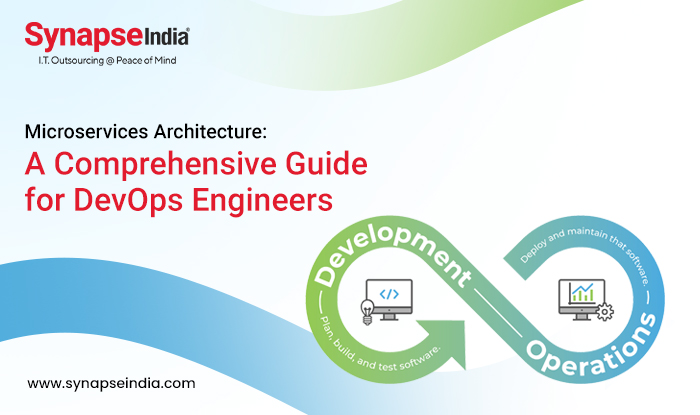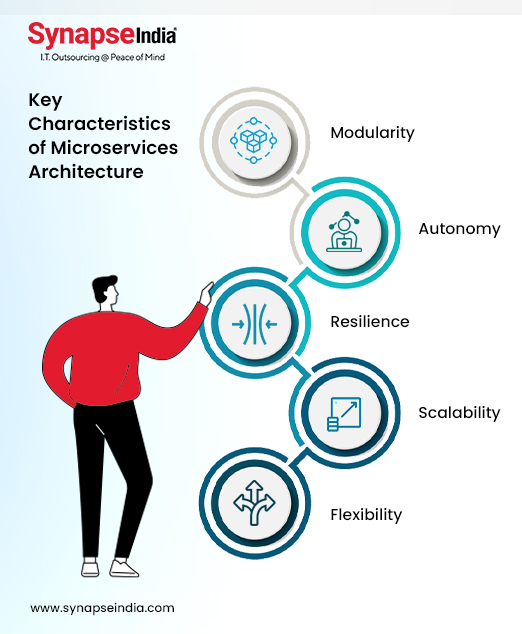 13 Dec 2023
13 Dec 2023
In recent years the world of software development has seen a significant shift towards the rise of microservices architecture. Microservices have emerged as a popular architecture style for building complex and scalable applications. The fundamental principle behind microservices is the separation concerns, where services perform a single task or function. Microservices architecture has become a paradigm shift that offers a modular and decentralized approach to building and deploying applications.
For DevOps engineers navigating the complexities of modern software delivery, understanding and implementing microservices architecture is crucial. In this blog, we will go into the core concepts, benefits, challenges, and best practices of microservices design patterns, equipping devops tools engineers with the knowledge to harness their power effectively.

Microservices is an architectural style where an application is built as a collection of loosely coupled, independently deployable services. Each service represents a specific business capability and can be developed, deployed, and scaled independently. These microservices architecture services communicate with each other through well-defined APIs, often over HTTP or lightweight messaging protocols.

Microservices architecture allows independent services to release faster cyclers. Here teams can iterate and release updates without waiting for the entire application to get redeployed.
Microservices is able to scale independently based on demand. It also optimizes resource use and ensures efficient performance.
In microservices, the failure in one service doesn’t cascade the entire application. In this case, it increases the overall system availability and reliability.
It also supports the use of various technologies for different services and allows teams to choose the most suitable tool for specific functionalities.
It is easier to maintain and update the individual services without disrupting the entire application. Microservices design patterns also facilitate continuous integration and continuous deployment practices.

Managing a distributed system is complex with a monolithic architecture. Hence, it required effective communication and coordination between services. While handling the consistency of data and transactions across multiple services can be challenging, data storage and communication patterns should require careful consideration. Microservices design patterns should be discovered and communicated with each other more efficiently and implementing them during the discovery of different mechanisms and communication is considered important.
Testing individual services and ensuring proper integration can be more challenging. Therefore, Debugging distributed systems requires specialized tools and practices. Microservices architecture has introduced new security challenges, such as securing communication between services and handling identity and access management. Hence, it requires a robust security strategy and best practices.
Microservices architecture represents a transformative approach to software development, enabling organizations to build scalable, agile, and resilient applications. For DevOps engineers, mastering the intricacies of microservices is essential for orchestrating the deployment, monitoring, and maintenance of distributed systems. Devops tools teams can harness the power of microservices to accelerate software delivery, enhance system reliability, and meet the dynamic demands of modern applications. Microservices architecture emerged as a cornerstone for building the next generation of scalable and responsive applications.

 18 Jun 2014
18 Jun 2014
